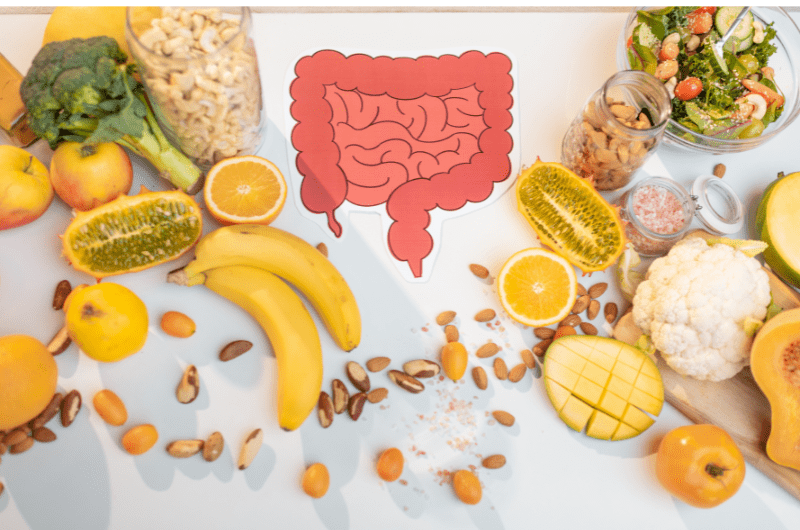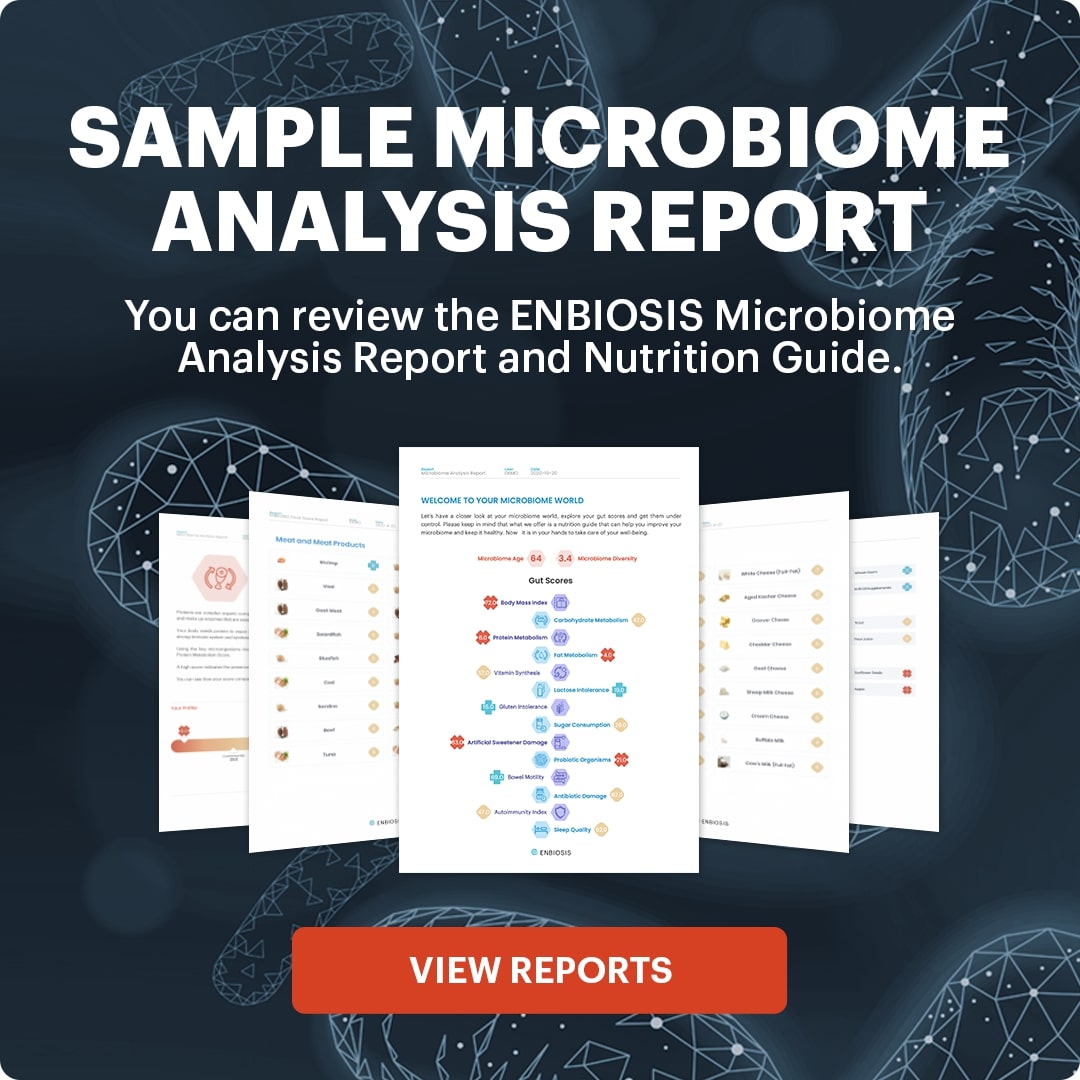Elimination diets have grown in popularity in recent years as a go-to option for improving various health conditions, including food allergies and digestive disorders. Medical practitioners, health gurus, and influencers have advocated these diets as a viable strategy to relieve symptoms and improve general health by eliminating certain food groups. In today’s society, more and more people are taking a proactive approach to their health, which has led them to consider long-term elimination diets as a potential healthy solution.
However, while restrictive diets may offer attractive short-term benefits, their long-term use may pose significant health risks, particularly when it comes to our gut microbiome. Join us in this blog article as we explore the potential harms of adopting an elimination diet long-term. We’ll find out more about how these diets can alter our gut microbiota, leading to reduced microbial diversity and potential long-lasting health issues.

Table of Contents
What Are Elimination Diets?
An elimination diet involves temporarily omitting specific foods from your diet to help you identify relationships between certain food groups and any undesirable reactions, such as allergic symptoms or signs of intolerance.
Typically, elimination diets involve two key phases:
- The Elimination Phase – potential trigger foods are removed from the diet
- The Reintroduction Phase – these foods are gradually added back while you carefully observe for any negative effects.
By following these phases, you can pinpoint which foods may be causing issues and make informed decisions about your food choices.
How Can Elimination Diets Affect Your Gut Microbiota?
While elimination diets can provide short-term relief from symptoms associated with dietary sensitivities, they can also have a significant impact on our gut microbiome.
In particular, elimination diets may lead to a reduction in the diversity of bacteria within our guts. For example, studies have shown that a low-fermentable oligosaccharides, disaccharides, monosaccharides, and polyols (FODMAP) diet (a specific type of elimination diet) can decrease gut bacteria diversity within just a few weeks. This reduction in diversity can affect the overall stability and functionality of the microbiome.
Long-term elimination diets can also lead to changes in the types of bacteria that inhabit our gut microbiome. If you think about it, by removing certain foods, you may inadvertently reduce the populations of beneficial bacteria that thrive on those foods. For instance, research has shown that IBS patients on exclusion diets have a greater abundance of Lachnospira and a lower abundance of Eubacterium, while those on restrictive diets have a lower abundance of Lactobacillus. These bacteria are beneficial to us, playing crucial roles in gut health, including the fermentation of dietary fibers, the production of short-chain fatty acids (SCFAs), and maintenance of the gut barrier. A reduction in these beneficial bacteria can lead to a less diverse and resilient microbiome, potentially exacerbating gastrointestinal symptoms and affecting overall gut health.
What are the Health Implications of a Disrupted Microbiome?

An imbalanced microbiome, also known as gut dysbiosis, can have serious health repercussions and has been linked to common gastrointestinal ailments, including Irritable Bowel Syndrome (IBS), Inflammatory Bowel Disease (IBD), and even colon cancer.
Let’s take a look at some of the specific health repercussions of a disrupted gut microbiome:
- As our gut bacterial ecosystem is integral to the functioning of our immune system, dysbiosis can lead to an overactive immune response. This can contribute to the development of autoimmune diseases such as type 1 diabetes, psoriasis, celiac disease, rheumatoid arthritis, and multiple sclerosis. Conversely, dysbiosis may also weaken the immune system, making the body more susceptible to infections.
- When our microbiome is out of balance, it has the potential to disrupt our metabolism too, leading to conditions such as obesity, type 2 diabetes, and metabolic syndrome. Dysbiosis can also impair the absorption of essential nutrients, leading to deficiencies in vitamins and minerals. This can have various health implications, including weakened bones, anemia, and impaired cognitive function.
- The gut-brain axis is a bidirectional communication system between the gut and the brain, and dysbiosis can influence mental health, contributing to conditions like depression, anxiety, and even cognitive impairments. This is because gut bacteria influence the production of neurotransmitters and other signaling molecules.
- Dysbiosis can lead to chronic inflammation, which is a risk factor for many chronic diseases, including cardiovascular disease, diabetes, and certain cancers.
- The health of the gut microbiome can also affect the skin, with dysbiosis being linked to conditions such as acne, eczema, and psoriasis.
- Finally, an imbalanced microbiome can influence the development of allergies and asthma, as the gut bacteria play a role in training the immune system to distinguish between harmful and harmless substances, and dysbiosis can disrupt this process.
Clearly, maintaining a balanced and diverse microbiome is essential for our overall health.
Personalized Nutrition as an Effective Alternative to Elimination Diets

While long-term elimination diets can negatively impact our gut microbiome, personalized nutrition plans can help to nurture and enhance it. So, let’s take a look at the findings of our recently published clinical study which explores this approach in more detail.
The findings of our multicenter, randomized controlled trial, published in The American Journal of Gastroenterology, show that personalized dietary interventions, tailored to people’s unique microbiome compositions and health profiles, were more effective at promoting gut health and reducing gastrointestinal symptoms than a standard elimination diet.
Our study found that participants who followed a personalized nutrition plan experienced a significant increase in microbial diversity, a key indicator of a healthy gut microbiome. The personalized nutrition plans were designed based on Enbiosis’s unique personalized nutrition model. In contrast, those following a low FODMAP diet experienced reduced microbial diversity, which can lead to dysbiosis and associated health issues. Notably, a low FODMAP diet is generally considered to be the gold standard for managing gastrointestinal symptoms, particularly in individuals with IBS. However, these diets primarily focus on suppressing symptoms rather than addressing underlying causes. On the other hand, our personalized nutrition approach provides long-lasting benefits by targeting specific imbalances in the gut bacteria.
Interestingly, a personalized approach also led to improved clinical outcomes, such as reduced IBS symptoms and enhanced overall well-being. Participants reported fewer gastrointestinal issues and better adherence to the dietary plan, highlighting the sustainability and practicality of personalized nutrition.
This exciting research highlights the importance of adopting individualized dietary interventions for maintaining gut microbiome health. By considering the unique characteristics of each person’s microbiome, personalized nutrition offers a more effective and sustainable alternative to long-term elimination diets, promoting long-term gut health and overall wellness.
Personalized Nutrition With Enbiosis
Are you ready to take control of your gut health with a personalized approach? At Enbiosis, we believe that one size does not fit all when it comes to nutrition. Using our AI-driven gut microbiome analysis service, we can identify your unique microbiome profile and create a customized diet strategy that promotes your optimal gut health and overall well-being.
Visit our website today to learn more about the benefits of a tailored dietary plan that works for you. Say goodbye to restrictive elimination diets and hello to a healthier, more resilient gut microbiome!

